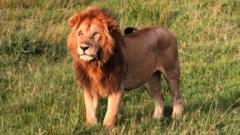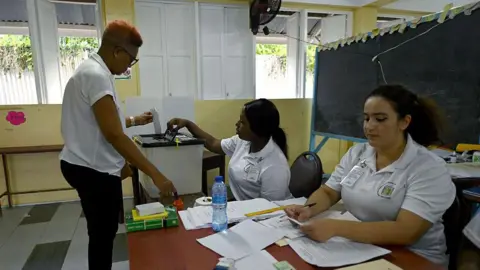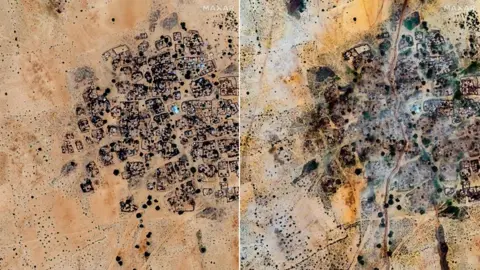While conflicts between lions and humans in Kenya are not uncommon, fatal attacks on people are relatively rare. Last year's alarming incident involved a lion captured on CCTV taking a pet dog from a residential compound near the park. Moreover, the KWS reported a separate incident over the weekend, when a 54-year-old man was killed by an elephant in Nyeri County, about 130km (80 miles) north of Nairobi. This elephant, which was grazing in Mere Forest, inflicted life-threatening injuries that ultimately led to the man's death in the hospital.
Wildlife conservationist Paula Kahumbu, head of WildlifeDirect, has called for urgent measures to address these increasing attacks. She emphasized the need for enhanced risk assessments and real-time communication regarding wildlife movements in known high-risk areas, such as the Savannah Ranch where the recent fatality occurred. Kahumbu also advocated for the implementation of anti-predator deterrent systems, including alarms and secure fencing, in residential areas near wildlife habitats, asserting that prevention is key to safeguarding human lives.
As the community grapples with the aftermath of this tragic event, the importance of finding a balance between wildlife conservation and human safety remains at the forefront of discussions in Kenya.
Wildlife conservationist Paula Kahumbu, head of WildlifeDirect, has called for urgent measures to address these increasing attacks. She emphasized the need for enhanced risk assessments and real-time communication regarding wildlife movements in known high-risk areas, such as the Savannah Ranch where the recent fatality occurred. Kahumbu also advocated for the implementation of anti-predator deterrent systems, including alarms and secure fencing, in residential areas near wildlife habitats, asserting that prevention is key to safeguarding human lives.
As the community grapples with the aftermath of this tragic event, the importance of finding a balance between wildlife conservation and human safety remains at the forefront of discussions in Kenya.



















